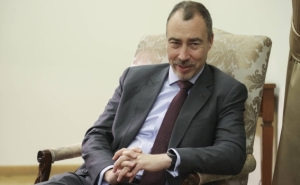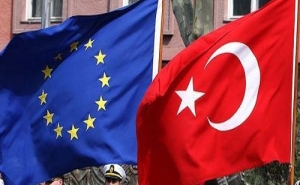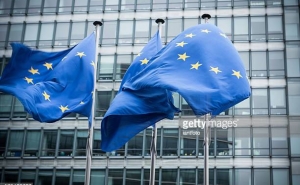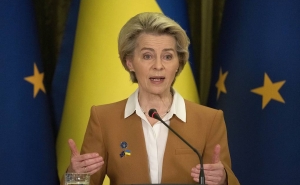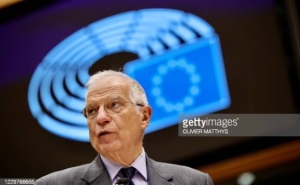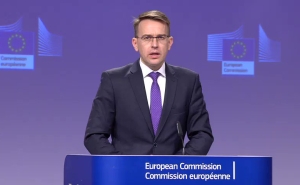Creation of the EU Army Again On the Agenda: For and Against
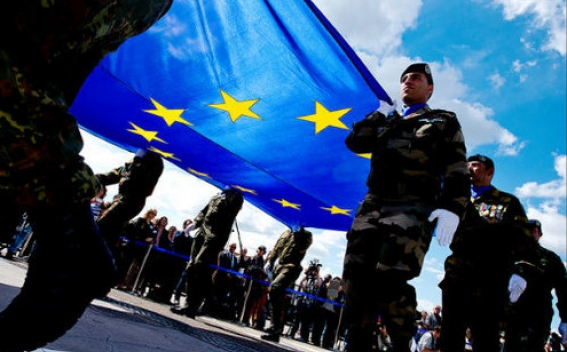
Germany is to push for progress towards a European army by advocating a joint headquarters and shared military assets, Financial Times reports. According to the source, initially scheduled to emerge shortly before the June 23 referendum vote but now probably delayed to July, the draft paper outlines steps to gradually coordinate Europe's patchwork of national militaries and embark on permanent co-operation under common structures.
The idea of formation of the joint army in the framework of EU is not a new one. Moreover, it was actively discussed in early 1950s, when France, Germany, Italy and the Benelux countries made an attempt to integrate the militaries of Western Europe, through the treaty establishing the European Defense Community. However, this draft did not enter into force, as it was not ratified in the French National Assembly. The idea continued to be on the agenda during the following years also and was totally designed and formed in 1980s. According to this logic in 1987 Franco-German Brigade was established. Then, in 1987, on the basis of Franco-German Brigade, the European Corps, also Euro corps, were founded. Now five countries participate in the corps as member states: France (since 1992), Germany (since 1992), Belgium (since 1993), Spain (since 1994), and Luxemburg (since 1996). Associated members are: Greece (since 2002), Poland (since 2002), Turkey (since 2002), Italy (since 2009), and Romania (since 2016). However, this body is created on the basis of intergovernmental agreements, so directly out of the overall structure of the EU and is not directly subject to the latter, which the European Army that is now being discussed is expected to be created within the EU itself.
The overwhelming majority of EU states agree with the idea of common Army. It will give the EU the opportunity to increase its role, to have reliable security guarantor and, moreover, will significantly reduce Europe's security expanses (according to various estimates, up to 120 billion euros).
Instead, the Great Britain has a negative attitude towards the formation of the EU Army. When in March 2015 the President of the European commission Jean-Claude Juncker again raised that issue, Great Britain officially reacted against it. "Our position is crystal clear that defense is a national, not an EU responsibility and that there is no prospect of that position changing and no prospect of a European army," a UK government spokesman said, BBC reports.
It's obvious, that the emergence of EU Army will significantly weaken NATO, which does not derive from the Anglo-American interests. And this mainly explains UK's position on this issue.
From time to time the question of the formation of European joint forces gets on the agenda. Many high officials make statements, slogans and justifications, but one thins is obvious - these kinds of issues are not to be solved in a day or two. Even in case of a general consolidation it will take many years till the idea of EU Army becomes a reality. It is not yet visible in the near future.
-
 17:08
17:08The regular session of the Anti-corruption Policy Council takes place in Jermuk
-
 15:05
15:05The Prime Minister sends congratulatory messages to the supreme leader of Iran and the President of Iran
-
 11:11
11:11Armenia sends earthquake aid to Turkey
-
 10:43
10:43Commemoration of the Pontiff St. Sahak Partev
-
 09:16
09:16Some roads are closed and difficult to pass in Armenia
-
 19:55
19:55Phone conversation of the Foreign Minister of Armenia with the U.S. Assistant Secretary of State for European and Eurasian Affairs
-
 18:30
18:30Prime Minister Pashinyan and President Khachaturyan meet
-
 18:20
18:20Ararat Mirzoyan with Co-Chairman of the OSCE Minsk Group of France Brice Roquefeuil
-
 17:01
17:01Humans could land on Mars within 10 years, Musk predicts
-
 16:45
16:45France, US urge 'immediate' end to Nagorno Karabakh blockade
-
 16:01
16:01Blockaded Nagorno Karabakh launches fundraiser to support quake-hit Syria
-
 15:59
15:59Earthquake death toll in Turkey rises to 18,342
-
 15:43
15:43Ararat Mirzoyan Held a Telephone Conversation with Sergey Lavrov
-
 15:06
15:06French president rules out fighter jet supplies to Ukraine in near future
-
 14:47
14:475 Day Weather Forecast in Armenia
-
 14:44
14:44President Vahagn Khachaturyan wrote a note in the book of condolences opened in the Embassy of Syria in Armenia
-
 14:20
14:20Azerbaijan’s provocations impede establishment of peace and stability – Armenian FM tells Russian Co-Chair of OSCE MG
-
 12:57
12:57France representation to OSCE: Paris calls on Azerbaijan to restore freedom of movement through Lachin corridor
-
 11:40
11:40Command of Kosovo forces highly appreciated preparation of Armenian peacekeepers
-
 10:16
10:16The United States withdrew from sanctions against Syria for six months the provision of assistance after the earthquake
day
week
month
Humidity: 12%
Wind: 2.06 km/h



